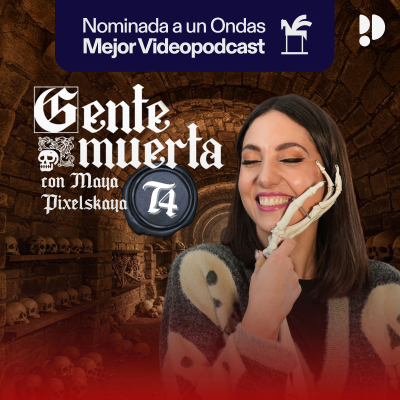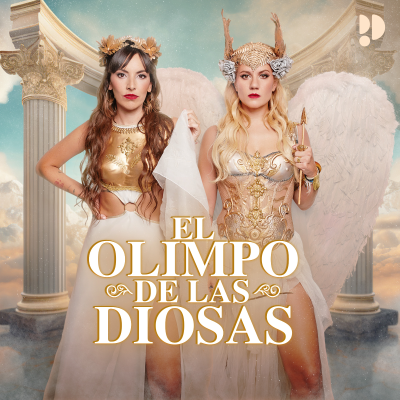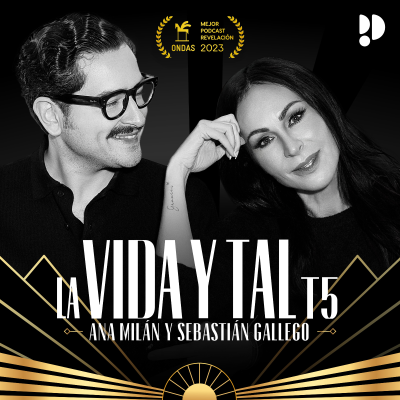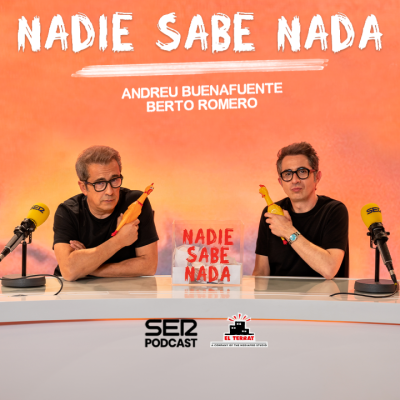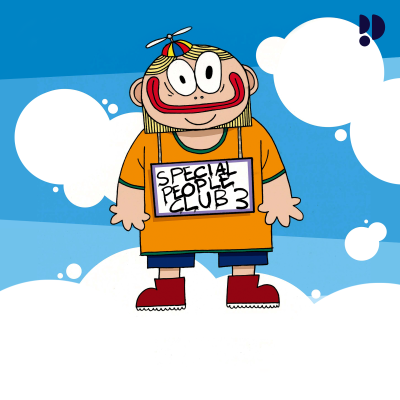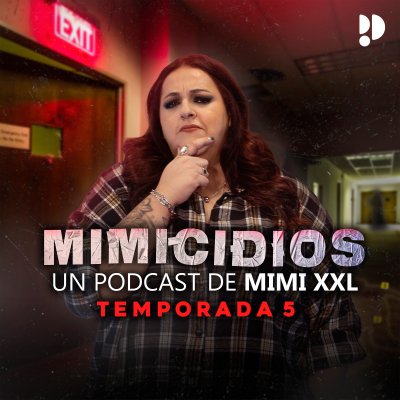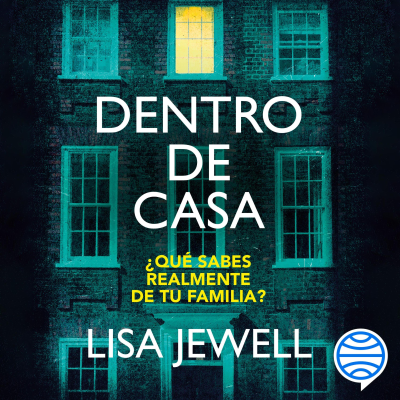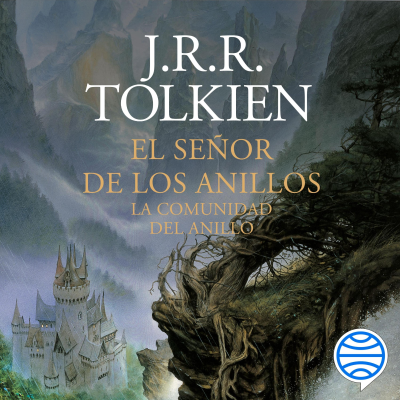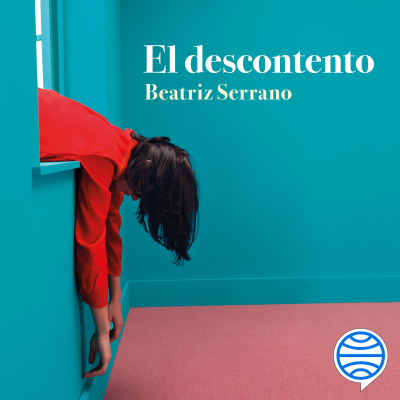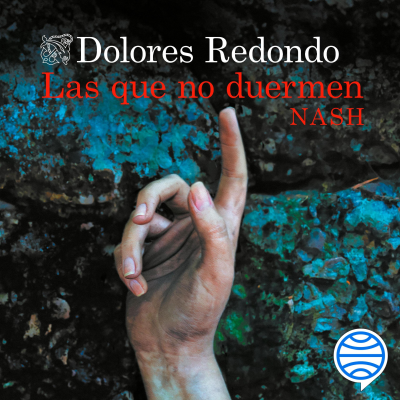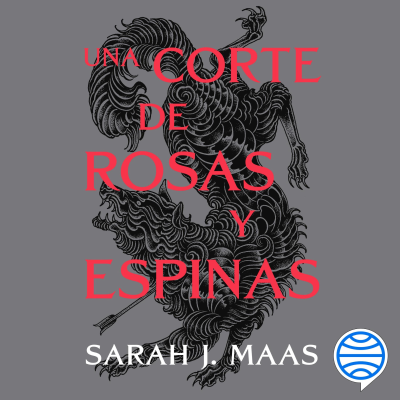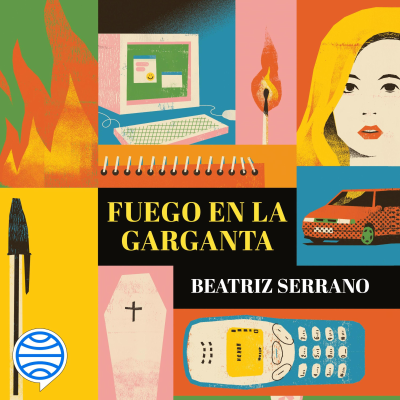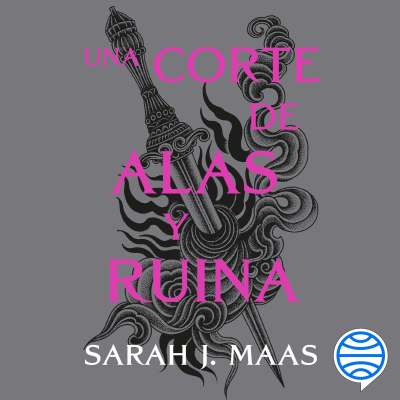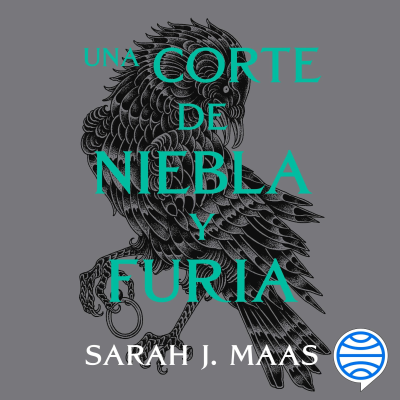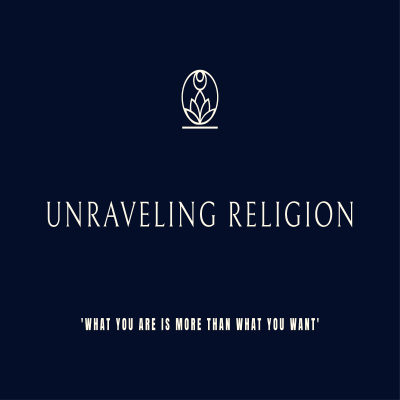
Escuchar Unraveling Religion
Podcast de Joel Lesses
These mystical and practical discussions are explorations of spirituality and its relation to religion and psychology, with questions always. Beyond a specific religion or spiritual practice; what do we share, what do we have in common? These talks are a work in progress evolving our rich inner life, including reflections on religious texts, poems, art, and what is common in our human experience enhancing understanding of our relationships: with ourselves, with one another, and with the world we share. Unraveling Religion has developed a cross-collaboration with both Lisa Carley's The Labyrinth podcast and Henry Cretella's Alchemical Dialogues podcast, cross-posting episodes both 'Selected, Best of The Labyrinth' podcast and 'Selected, Best of Alchemical Dialogues' podcast episodes, periodically.
Empieza 30 días de prueba
4,99 € / mes después de la prueba.Cancela cuando quieras.
Todos los episodios
50 episodiosPart 2 the Panels opens to discuss: * 'What makes us come alive?' * 'What is your 'note' in life?' (Rumi's 'be your note.') Discussion turns to Rumi's quote 'when I was young I wanted to change the world, when I grew older I wanted only to change myself.' How do we attune to spiritual teachers? How do we know who our spiritual teachers are meant to be? Moments that open and we lose sense of time, time falls away: * Activity * When meeting new people, old karmic connections? * In our Dharma, our work * Henry's discussions, Sohbet, mystical discussions on mystical subjects, with his teacher. * How do we find what makes us home in the world? * How do we cultivate spiritual discernment in Life? * The World as ourself * Is there preparation to receive 'flow' states? The Panel also explores: * Where does the spiritual path begin? * What are the implications of having a guide or spiritual teacher? * Teachers seeing into their students * Tears as an indicator of one's spiritual path * Sufism as a path of 'heart' * Karma of helping others as way of being helped The importance of 'others before self.' We end with two poems from Ikkyu: Raincoat and Straw Hat Woodcutters and fishermen know just how to use things. What would they do with fancy chairs and meditation platforms? In straw sandals and with a bamboo staff, I roam three thousand worlds, Dwelling by the water, feasting on the wind, year after year. I Hate The Smell of Incense A master's handiwork cannot be measured But still priests wag their tongues explaining the 'Way' and babbling about 'Zen.' This old monk has never cared for false piety And my nose wrinkles at the dark smell of incense before the Buddha. Biographies of Panel: Dr. Bob Insull is an New York State Licensed Psychologist with more than 60 years experience teaching, training, and treating in the arena of human behavior. In his clinical practice, he has worked across the developmental stages (children to golden-agers), across the diagnostic spectrum (chemical dependency, severe mental illness, relationship issues, depression, anxiety, and PTSD), and treatment settings (clinics, inpatient psychiatric centers, and private practice). During the closing years of his practice, he became interested in the area of psychological trauma and worked with survivors in individual and group settings. He has been retired from active practice for about 15 years and spends his time engaged in self-discovery on the Sufi Path and social-change activities with his church. Brian Mistler is a hillbilly from rural Missouri, he has spent his life investigating Reality and learning about the apparent world. He has lived as a computer scientist, psychologist, running and growing some successful businesses, helping others entrepreneurs, hospitals, and healthcare providers. In 2021, Brian had a partially debilitating nerve injury and soon after met a true Vedanta teacher who spent 30+ years in India and trained under Swami Chimayananda, Sawmi Dayananda, and others. He now studys and disseminate non-dual wisdom through writing and conversation. The Om/Aum is a reminder of this fact. Richard Grego is Professor of philosophy and cultural history at FSCJ. His research interests focus on cross cultural themes in religion and science - including philosophy of mind, comparative world religions/world civilizations, and the metaphysical - theological implications of theoretical physics and cosmology. His publications have included studies in the history - philosophy of science and conceptions of nature in the history of western philosophy, as well as cross-cultural perspectives on mind/ consciousness in western philosophy - psychology and the neo-Vedanta Hindu tradition. Prior to his academic career, he was a criminal investigator - polygraph examiner for the Florida Office of the Public Defender and in the private sector Instructor at the Criminal Justice Institute and International Academy of Polygraph Science in Florida, and national Academic Director of the Criminal Defense Investigation Training Council. Joel David Lesses is President and Executive Director of Education Training Center, Inc. and his work experience is in education, psychology, and counseling for people marginalized by trauma, addiction, and psychological distress. He is deeply vested in addressing the effects of mental health distress and its marginalization including, incarceration, homelessness, and institutionalization. Joel is dedicated to reframing mental health distress as a potential spiritual marker and existential opportunity. He holds dual Master of Science degrees from University at Buffalo in Rehabilitation Counseling and Biomedical Sciences with a concentration in Epidemiology. Henry Cretella, M.D. studied and practiced Tibetan Buddhism for several years along with training in martial arts. He then immersed himself in the more universal Sufism of Inayat Khan, an Indian mystic, for close to twenty years. He functioned as a senior teacher in the Inayati Order and the Sufi Healing Order before pursuing his independent practice and study of mysticism. He now integrates what he has learned and experienced over these many years. He graduated from Vanderbilt Medical School and completed his psychiatric training at Strong Memorial Hospital of the University of Rochester in Rochester, NY. His professional career spanned over 40 years as a general and child and adolescent psychiatrist and included teaching, administration, clinical practice and consultation in the greater Rochester and western NY areas. This, along with his spiritual and especially mystical interests lead him to certification as a mind body practitioner through the Center for Mind Body Medicine and Dr. James Gordon. He retired several years ago from active psychiatric practice, but continues to incorporate what he has learned into his spiritual practices and offerings.
Part 1 of this discussion examines psychology, philosophy, religion, spiritually, science, and medicine, a panel of five (5) people opens with the question, 'where am I?' and 'what is going on [in the world]?' and refers to James Hillman, ideas and action as an artificial distinction, are they the same thing? How are they interlinked? The poet Major Ragain is quoted, 'contemplation alters the course of rivers.' From the Bhagavad Gita: * Freedom from action is not accomplished by abstaining from action, so how is it accomplished? * Relinquishing the fruit of action Ghandi's, 'through service, I find myself.' The Panel begins to examine the Taoist concept of non-action, Wu Wei. How do we cultivate Wu Wei? The Panel explores Univerisal Truths. * Natural action arises, we have a deep intrinsic calling, how do we find and express it? * What is our reason for being here? * To receive the Divine Will is a part of choiceless action. Biographies of Panel: Dr. Bob Insull is an New York State Licensed Psychologist with more than 60 years experience teaching, training, and treating in the arena of human behavior. In his clinical practice, he has worked across the developmental stages (children to golden-agers), across the diagnostic spectrum (chemical dependency, severe mental illness, relationship issues, depression, anxiety, and PTSD), and treatment settings (clinics, inpatient psychiatric centers, and private practice). During the closing years of his practice, he became interested in the area of psychological trauma and worked with survivors in individual and group settings. He has been retired from active practice for about 15 years and spends his time engaged in self-discovery on the Sufi Path and social-change activities with his church. Brian Mistler is a hillbilly from rural Missouri, he has spent his life investigating Reality and learning about the apparent world. He has lived as a computer scientist, psychologist, running and growing some successful businesses, helping others entrepreneurs, hospitals, and healthcare providers. In 2021, Brian had a partially debilitating nerve injury and soon after met a true Vedanta teacher who spent 30+ years in India and trained under Swami Chimayananda, Sawmi Dayananda, and others. He now studys and disseminate non-dual wisdom through writing and conversation. The Om/Aum is a reminder of this fact. Richard Grego is Professor of philosophy and cultural history at FSCJ. His research interests focus on cross cultural themes in religion and science - including philosophy of mind, comparative world religions/world civilizations, and the metaphysical - theological implications of theoretical physics and cosmology. His publications have included studies in the history - philosophy of science and conceptions of nature in the history of western philosophy, as well as cross-cultural perspectives on mind/ consciousness in western philosophy - psychology and the neo-Vedanta Hindu tradition. Prior to his academic career, he was a criminal investigator - polygraph examiner for the Florida Office of the Public Defender and in the private sector Instructor at the Criminal Justice Institute and International Academy of Polygraph Science in Florida, and national Academic Director of the Criminal Defense Investigation Training Council. Joel David Lesses is President and Executive Director of Education Training Center, Inc. and his work experience is in education, psychology, and counseling for people marginalized by trauma, addiction, and psychological distress. He is deeply vested in addressing the effects of mental health distress and its marginalization including, incarceration, homelessness, and institutionalization. Joel is dedicated to reframing mental health distress as a potential spiritual marker and existential opportunity. He holds dual Master of Science degrees from University at Buffalo in Rehabilitation Counseling and Biomedical Sciences with a concentration in Epidemiology. Henry Cretella, M.D. studied and practiced Tibetan Buddhism for several years along with training in martial arts. He then immersed himself in the more universal Sufism of Inayat Khan, an Indian mystic, for close to twenty years. He functioned as a senior teacher in the Inayati Order and the Sufi Healing Order before pursuing his independent practice and study of mysticism. He now integrates what he has learned and experienced over these many years. He graduated from Vanderbilt Medical School and completed his psychiatric training at Strong Memorial Hospital of the University of Rochester in Rochester, NY. His professional career spanned over 40 years as a general and child and adolescent psychiatrist and included teaching, administration, clinical practice and consultation in the greater Rochester and western NY areas. This, along with his spiritual and especially mystical interests lead him to certification as a mind body practitioner through the Center for Mind Body Medicine and Dr. James Gordon. He retired several years ago from active psychiatric practice, but continues to incorporate what he has learned into his spiritual practices and offerings.
Rabbi Jessica Minnen [https://www.pardes.org.il/faculty/jessica-minnen/] and Joel sit for a deep examination of work and the different forms work takes for us as human beings. Rabbi Jessica and Joel start with discussing Torah [https://www.chabad.org/library/bible_cdo/aid/63255/jewish/The-Bible-with-Rashi.htm] and the teaching of G-d's Work (i.e., Six (6) Days of Creation) and G-d's Rest, and how that relates to Shabbas [https://en.wikipedia.org/wiki/Shabbat]: * The conversations about the Shabbas Hebrew shoresh (i.e., root of the word) [https://hebrewmonk.com/glossary/shoresh/] 'shin, bet, and taf' (i.e., Shabbas) * From the teaching of Shabbas, the thirty-nine (39) forms of Melachot [https://www.chabad.org/library/article_cdo/aid/102032/jewish/The-39-Melachot.htm] (i.e., work) are discussed, and Melachot is outlined as work forbidden on Shabbas. * The definition of the thirty-nine (39) Melachot comes from the work required to create the Mishkan (i.e., Tabernacle) [https://www.chabad.org/parshah/article_cdo/aid/2133493/jewish/What-Was-the-Tabernacle-Mishkan.htm] and that specific work defines what work is not allowed on Shabbas. Also discussed is the relationship between work and destiny, and the spirituality of work. An excerpt from Pema Chodron [https://pemachodronfoundation.org] 'nothing leaves us before it teaches us what we need to know' suggests the work required in human relationships and the teaching of Reb Soloveitchik [https://www.chabad.org/search/keyword_cdo/kid/2755/jewish/Soloveitchik-R-Joseph-Ber.htm] are also discussed: two stories of creation in Torah point to two ways to relate to the world and two kinds of work: physical and spiritual. Work and its relation to authencity and authenic expression versus Quid Pro Quo are contrasted, as well as women in work from a Judaism perspective, evolution of women and work and practical consideration. The organization 'One Table' [https://onetable.org] is mentioned, helping young people access Shabbas Dinner experiences. Plato's teaching of the Soul with Two Faces [https://wisdomshort.com/philosophers/plato/on-soulmates] and its relation to the Jewish teaching of Bashert [https://www.chabad.org/library/article_cdo/aid/5524205/jewish/What-Does-Bashert-Mean.htm] and Kabbalah. Lanie Gardner as an example of authencity in work [https://youtu.be/V1LhC1zGouc?si=NxajqfQrR3S4iMIP]. Tzelem Elokim [https://www.chabad.org/kabbalah/article_cdo/aid/380812/jewish/Emanations-Interact.htm] (i.e., humans are created in the image of G-d) posits that because God creates, we too are meant to create. Are we called to create in work through destiny or do we work to pay bills and solve practical problems. Work is revealed in it own time. Marcus Aurelius [https://en.wikipedia.org/wiki/Marcus_Aurelius] 'the obstacle is the door.' Chappell Roan and their NPR Tiny Desk. [https://www.npr.org/2024/03/21/1238815351/tiny-desk-concert-chappell-roan] How to make work meaningful for all. Seattle Grunge scene in the early 1990s an an authentic expression of music and work. The shoresh 'aleph, lamed, and chaf' (i.e., from Melachot) ties to 'dispatching for a purpose' and the root ties to the Hebrew work for 'Messenger' and/or 'Angel'- that work offers purpose, and can give one a sense of mission that ties into intention and service. About Rabbi Jessica Minnen Rabbi Jessica Minnen is a writer, ritualist, and liturgist committed to the discipline of delight. Inspired by user-centered design, she consults with organizations across the country to create, deliver, and scale transformative Jewish learning. Jessica is a sought-after educator who has taught for Hillel International, Jewish Federations of North America, JCC Association of North America, Foundation for Jewish Camp, and Birthright Israel, among others. She was a part of the founding team of OneTable where she served as Rabbi in Residence from 2014-2021, and now works as a Senior Education Specialist with Momentum where she focuses on introducing women around the world to Jewish values through an immersive Israel experience, regional retreats, cohort-based learning, and a daily companion app. Originally from Paducah, Kentucky, Jessica is an alumna of Washington University in St. Louis, the Pardes Institute of Jewish Studies, Paideia: The European Institute for Jewish Studies in Sweden, and Baltimore Hebrew University. She is a past Fellow of the Shalom Hartman Institute’s Women’s Leadership Mission and the Ruskay Institute for Professional Leadership and received rabbinic ordination from the Jewish Theological Seminary in 2013. Jessica lives in Denver, Colorado and is mom to one amazing dog and one amazing human.
Leanne and Joel met at the Lamberton Conservatory move to sit on the grass near Poet's Park in Rochester's Highland Park. The time opens with Leanne asking Joel about his sweatshirt and the meaning of 'Am Yisrael Chai' as Joel explains the emblem on the sweatshirt, a Hamsa and the talk moves to intentions of people, ill intention and service orientated intention and how the Universe mirrors our intentions by giving what we give and offering what we offer. A blanket is set and the Soul, biking, hiking in relation to health is discussed. The topic of hiking arises and Joel shares how he met his 'good friend' Dave at a Zen group and the intuitive knowing that arose guiding the connection. Leanne talks and teaches about Green Burial, birth, and Isiah House a hospice house for people at end of life without options to afford hospice care otherwise. Leanne shares more about Green Burial and the talk moves to Bardos and Karma. Joel shares the story of a most influential mentor and 'good friend' John Bednarchik (Pictured) and John's passing from this world in 2012.
In today’s The Labyrinth podcast, retired psychiatrist Henry Cretella joins us to share both his philosophy and personal experience with surrender. We begin our conversation with Eckart Tolle’s view that surrender requires an expansion (and often suspension) of our rational mind. From there, we discuss the general nature of surrender and the role of intuition. We move into sharing stories about times when we felt a deep intuition/calling to stretch the boundaries of our limited rational frameworks and take a leap. The podcast ends with Hazrat Inayat Khan's essay on the future of humankind. Biography Henry Cretella, M.D., graduated from Vanderbilt Medical School and completed his psychiatric training at Strong Memorial Hospital of the University of Rochester in Rochester, NY. His professional career spanned over 40 years as a general and child and adolescent psychiatrist and included teaching, administration, clinical practice and consultation in the greater Rochester and western NY areas. This, along with his spiritual and especially mystical interests lead him to certification as a mind body practitioner through the Center for Mind Body Medicine and Dr. James Gordon. He retired several years ago from active psychiatric practice, but continues to incorporate what he has learned into his spiritual practices and offerings. Henry studied and practiced Tibetan Buddhism for several years along with training in martial arts. He then immersed himself in the more universal Sufism of Inayat Khan, an Indian mystic, for close to twenty years. He functioned as a senior teacher in the Inayati Order and the Sufi Healing Order before pursuing his independent practice and study of mysticism. He now integrates what he has learned and experienced over these many years.
Empieza 30 días de prueba
4,99 € / mes después de la prueba.Cancela cuando quieras.
Podcasts exclusivos
Sin anuncios
Podcast gratuitos
Audiolibros
20 horas / mes


